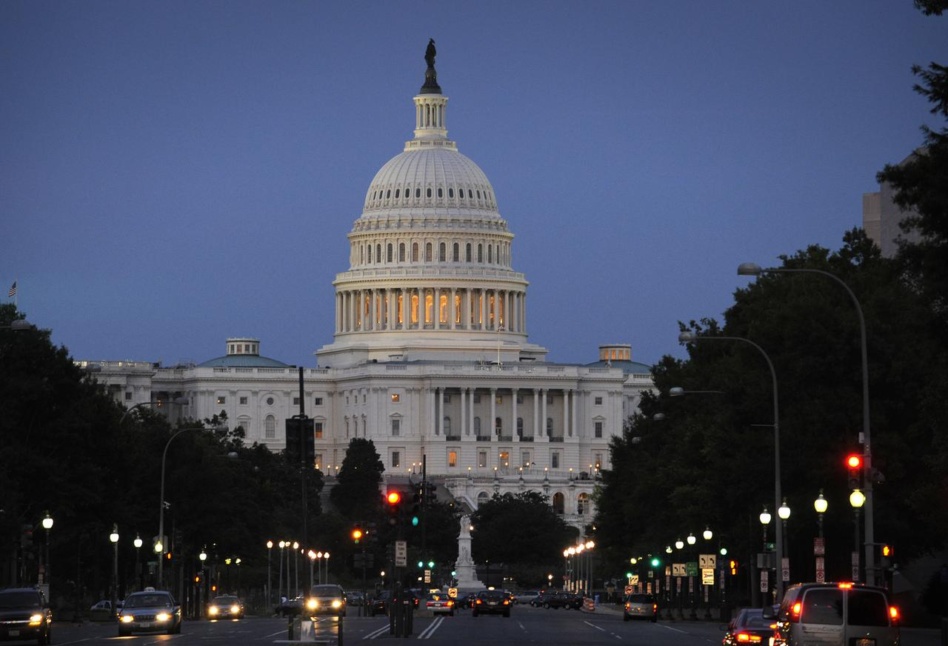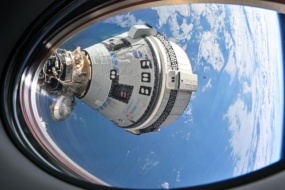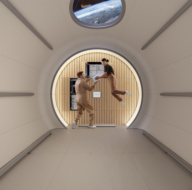More than a dozen space and science organizations are getting ready to canvas the Hill this October to fight for NASA’s science budget.
The groups are asking volunteers to register to come to DC on Oct. 5 and 6. The organizations’ plan is to educate members of Congress on the importance of NASA science, and the wide-ranging benefits the agency provides to the whole country.
Better together: Participating organizations include the American Astronomical Society, the American Geophysical Union, AIAA, the Association of American Universities, Explore Mars, the Mars Society, the Maryland Aerospace Alliance, the National Space Society, the Planetary Society, the Scientific Society for Astrobiology, the Universities Space Research Association, Stand Up for Science, and Black in Astro.
The diverse group means lawmakers will get to hear from people ranging from scientists to engineers to the general public. Registrations are already pouring in, according to Jack Kiraly, the Planetary Society’s director of government relations.
“Just seeing the way that the House and Senate have reacted to the budget request, the outright rejection of it…it’s not the end, the score hasn’t been settled yet, but it’s a huge boost, a big win, and it means the messaging and tactics are working,” he said. “Instead of stopping and resting, it’s like, ‘Ok this works. Let’s double down.’ That’s the ethos I’m bringing.”
A science web: Brittany Webster, AGU’s assistant director for science policy and government relations, said the organization’s membership can demonstrate that NASA science doesn’t happen in a vacuum. Webster highlighted the links to other agencies, such as the National Science Foundation or NOAA, as well as connections with the Department of Energy.
“Every state is a NASA state,” she said. “Our members are the ones who can really bring that to life.”
Red Planet: Chris Carberry, the CEO of Explore Mars, said he’s looking to emphasize to lawmakers that the space science being cut by the administration is critical to the administration’s goal of sending humans to Mars.
“This has been a problem for a number of years. Ever since Congress assumed we will be sending humans to Mars, they started thinking science missions aren’t necessary anymore because we’ll be sending humans,” he said. “But that’s not the case. Robotic science missions will be needed even when we’re there [with people].”
Politically charged: Carberry also said most lawmakers on both sides of the aisle are supportive of space science and exploration, and don’t actually need to be convinced that missions are worthwhile. Instead, one goal of the meetings will be working with lawmakers on how to support space science, without losing political support from constituents in their home districts.
Timing: The volunteers’ visit to Congress comes after the close of the fiscal year—but Kiraly said the early October timeline was selected because:
- Congress has limited legislative days before the end of the fiscal year, making a CR more likely. That means early October will hit the post-CR sweet spot where lawmakers can focus on fiscal 2026.
- Early October is when the administration could implement “scare tactics,” Kiraly said—putting volunteers in a position to quickly respond to things like the administration impounding funds, or looking to further limit CR funding.
Too late? Even if advocates are successful in fighting for a larger budget, there’s some concern that NASA won’t be able to carry out all of its funded missions after deferred resignations cut nearly 4,000 people from the agency’s workforce.
“If we lose all of these highly qualified people, but we get the budget we want, how is NASA going to be able to act on it?” Kiraly said.





